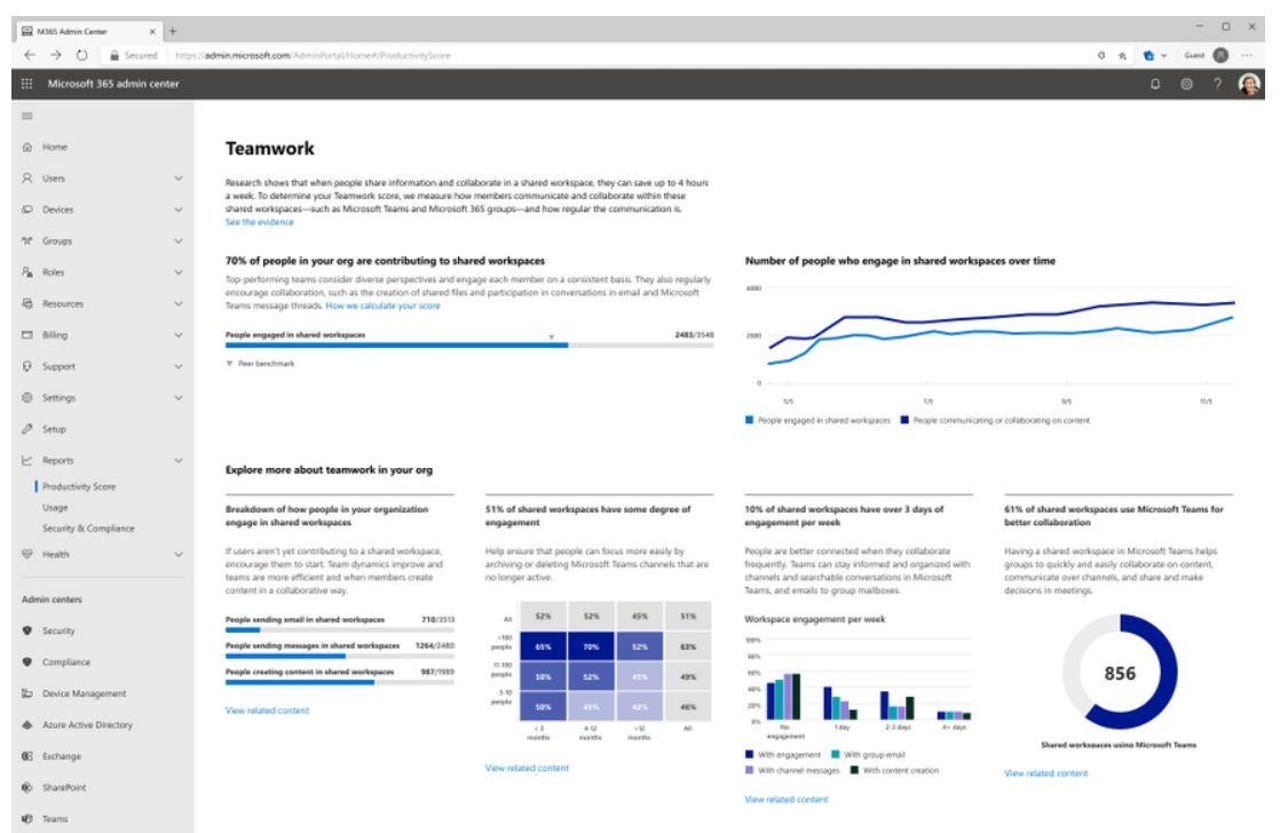Microsoft to make changes to Productivity Score after privacy complaints


More Microsoft
Microsoft is making changes to the Microsoft Productivity Score tool in response to recent privacy complaints about the offering. Microsoft outlined some of the tweaks it is planning, while simultaneously pointing out how its productivity telemetry tools already offer some privacy guarantees -- in a December 1 blog post.
Also: Microsoft is adding more calling features to Teams
Productivity Score is one of the key pieces of the way Microsoft touts its ability to provide users and managers with insights about how people are spending their time, as well as how and where Microsoft 365 is installed inside of organizations. The service provides scores around communication, meetings, content collaboration, teamwork, mobility, endpoint analytics, network connectivity, and Microsoft 365 App health, each with a total of 100 possible points.
Microsoft announced Productivity Score in October as yet another of its growing family of digital-transformation and workplace analytics tools. Last week, privacy advocate Wolfie Christi, a researcher with the Austria-based digital-rights non-profit Cracked Labs, accused the Productivity Score feature of being a "full-fledged workplace surveillance tool." His criticism got the privacy-advocacy news cycle going.
Today, Microsoft officials said the company is removing user names from the Microsoft Productivity Score. From Microsoft 365 Corporate Vice President Jared Spataro's blog post:
During preview, we added a feature that showed end-user names and associated actions over a 28-day period. In response to feedback over the last week, we're removing that feature entirely. Going forward, the communications, meetings, content collaboration, teamwork, and mobility measures in Productivity Score will only aggregate data at the organization level-providing a clear measure of organization-level adoption of key features. No one in the organization will be able to use Productivity Score to access data about how an individual user is using apps and services in Microsoft 365.
Three measures in Productivity Score -- Microsoft 365 App health, network connectivity, and endpoint analytics -- don't include user names, Spataro noted. They instead rely on "device-level identifiers."
Microsoft also is changing the user interface to clarify that Productivity Score measures organizational adoption of tech, not individual user behavior. Spataro noted that Productivity Score measures an overall organization's score isn't about tracking individual users.